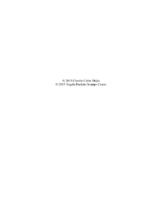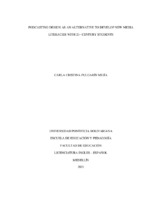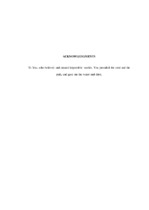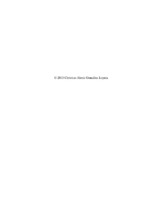Mostrar el registro sencillo del ítem
An exploration of children’s personal literacies
| dc.contributor.advisor | Mora Vélez, Raúl Alberto | |
| dc.contributor.author | Cañas Mejía, Claudia | |
| dc.contributor.author | Ocampo Castro, Ángela Patricia | |
| dc.coverage.spatial | Seccional Medellín. Universidad Pontificia Bolivariana. Escuela de Educación y Pedagogía. Maestría en procesos de Aprendizaje y Enseñanza de Segundas Lenguas | spa |
| dc.date.accessioned | 2016-09-12T20:17:38Z | |
| dc.date.available | 2016-09-12T20:17:38Z | |
| dc.date.issued | 2015 | |
| dc.identifier.uri | http://hdl.handle.net/20.500.11912/2649 | |
| dc.description | 137 p. | spa |
| dc.description.abstract | This is a qualitative study with an ethnographic approach that explores children’s personal literacies in two elementary schools in the city of Medellin, Colombia. Children, parents and teachers participated in this study. Data instruments comprised interviews, class observations and children’s artifacts. The conceptual framework is based on the idea that “Literacy is a social practice” (Street, 2003) and embraces concepts related with Multiliteracy, multimodality, literacy practices, literacy events and in- and out-of-school literacies which helped us construct our own understanding about personal literacy. One that takes into consideration that literacy can occur beyond the school walls and involves various ways of expression children use to convey meaning to themselves and to others. Findings from this study confirm that children have different purposes to carry out their literacies. In their productions, children express their ideas and feelings, interact with others, learn new topics, and explore their interests. Along the analysis, we also observed common characteristics among children’s literacies. Children receive influence from people around them; they find inspiration on their own experiences; they use different ways of expression; they change their literacies as they grow up; and they use in- and out-of-school resources to enrich their literacies. Our study suggests teachers should use multimodal texts and include personal literacies to enhance children’s learning experiences. The teachers’ task is to transform their classes into spaces where students acquire the tools to deal with the new demands of the world. Future research could include the characterization of children’s personal literacies at different ages. | spa |
| dc.format.mimetype | application/pdf | |
| dc.language.iso | en | |
| dc.rights | Attribution-NonCommercial-NoDerivatives 4.0 International | * |
| dc.rights.uri | http://creativecommons.org/licenses/by-nc-nd/4.0/ | * |
| dc.subject | Literacy; Literacy practices; Literacy events; Multiliteracy; Multimodality; In-school literacy; Out-of-school literacy; Personal literacy. | spa |
| dc.title | An exploration of children’s personal literacies | spa |
| dc.type | other | spa |
| dc.rights.accessRights | openAccess | spa |
| dc.type.hasVersion | publishedVersion | spa |
| dc.identifier.instname | instname:Universidad Pontificia Bolivariana | spa |
| dc.identifier.reponame | reponame:Repositorio Institucional de la Universidad Pontificia Bolivariana | spa |
| dc.identifier.repourl | repourl:https://repository.unab.edu.co/ |
Ficheros en el ítem
Este ítem aparece en la(s) siguiente(s) colección(ones)
-
Tesis de especialización, maestría y doctorado [1863]
Tesis de especialización, maestría y doctorado





